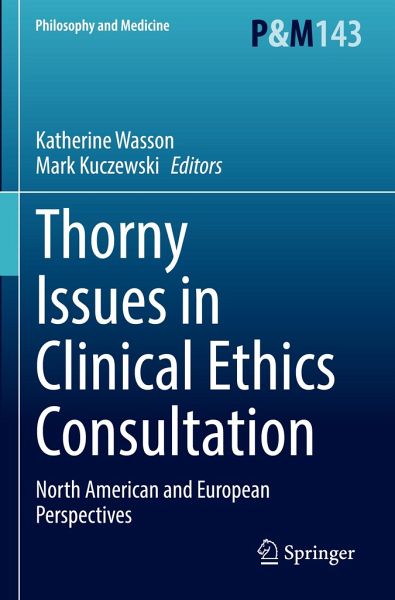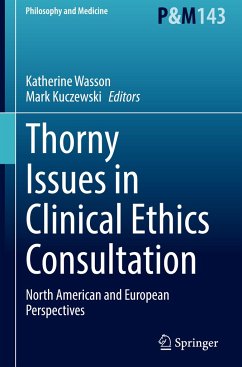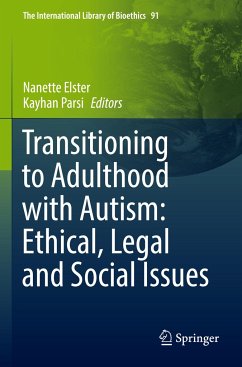
Thorny Issues in Clinical Ethics Consultation
North American and European Perspectives
Herausgegeben: Wasson, Katherine; Kuczewski, Mark
Versandkostenfrei!
Versandfertig in 6-10 Tagen
98,99 €
inkl. MwSt.

PAYBACK Punkte
49 °P sammeln!
This book addresses new and evolving thorny issues in clinical ethics consultation. It is a book for our time. The contributors provide essential critical reflection on the standards and methods of training clinical ethics consultants as the field seeks to professionalize. This collection incorporates both North American and European experts, offering different perspectives on issues such as marginalized populations, the opioid epidemic, complex discharge, micro-managing families, and continually challenging issues at the end-of-life, such as determinations of brain death, physician-assisted d...
This book addresses new and evolving thorny issues in clinical ethics consultation. It is a book for our time. The contributors provide essential critical reflection on the standards and methods of training clinical ethics consultants as the field seeks to professionalize. This collection incorporates both North American and European experts, offering different perspectives on issues such as marginalized populations, the opioid epidemic, complex discharge, micro-managing families, and continually challenging issues at the end-of-life, such as determinations of brain death, physician-assisted death, and futility. The authors engage the complexities of choosing for others when making decisions for incapacitated adults and pediatric patients. This volume engages with the growing literature in these debates and offers new perspectives from both academics and practitioners. The readings are of particular interest to bioethicists, clinicians, ethics committees, and students in bioethics and beyond. These new essays advance discussions in the professionalization and certification of ethics consultants and offer crucial insights on new and evolving thorny issues in the practice of clinical ethics consultation.














